Related Research Articles
Fanny is a feminine given name. Its origins include diminutives of the French name Frances meaning "free one", and of the name "Estefanía", a Spanish version of Stephanie, meaning "crown".

Constance is a primarily feminine given name in use since the Middle Ages that is derived either from Constantia, a Late Latin name, or from the term meaning steadfast. In medieval England, diminutives of the name included Cust or Cussot. Puritans used Con, Constant, and Constancy. Other variations of the name include Connie, Constancia, and Constanze.
Amy is an English feminine given name, the English version of the French Aimée, which means beloved. It was used as a diminutive of the Latin name Amata, a name derived from the passive participle of amare, “to love”. The name has been in use in the Anglosphere since the Middle Ages. It was among the 50 most popular names for girls in England between 1538 and 1700. It was popularized in the 19th century in the Anglosphere by a character in Sir Walter Scott's 1821 novel Kenilworth, which was based on the story of Amy Robsart. Enslaved Black women in the United States prior to the American Civil War were more likely to bear the name than white American women because slave masters often chose their names from literary sources. The name declined in use after 1880 but was revived due to the hit song Once in Love with Amy from the 1948 Broadway musical Where's Charley?. The name peaked in usage in the United States between 1973 and 1976, when it was among the five most popular names for American girls. It remained among the top 250 names for American girls in the early 2020s.

Lucy is an English feminine given name derived from the Latin masculine given name Lucius with the meaning as of light. Alternative spellings are Luci, Luce, Lucie, Lucia, and Luzia.

Eva is a female given name, the Latinate counterpart of English Eve, which is derived from the Hebrew חַוָּה (Chava/Hava), meaning "life" or "living one", the name of the first woman according to the Hebrew Bible. It can also mean full of life or mother of life. It is the standard biblical form of Eve in many European languages. Evita is a diminutive form, in Spanish.

Margaret is a feminine given name, meaning "pearl". It is of Latin origin, via Ancient Greek and ultimately from Old Iranian. It has been an English name since the 11th century, and remained popular throughout the Middle Ages. It became less popular between the 16th and 18th century, but became more common again after this period, becoming the second-most popular female name in the United States in 1903. Since this time, it has become less common, but was still the ninth-most common name for women of all ages in the United States as of the 1990 census.

Agnes is a feminine given name derived from the Greek Ἁγνή Hagnḗ, meaning 'pure' or 'holy'. The name passed to Italian as Agnese, to French as Agnès, to Portuguese as Inês, and to Spanish as Inés. It is also written as Agness. The name is descended from the Proto-Indo-European *h₁yaǵ-, meaning 'to sacrifice; to worship,' from which is also the Vedic term yajña. It is mostly used in Greece and countries that speak Germanic languages.

Harriet is a female name.

Sarah is a common feminine given name of Hebrew origin. It derives its popularity from the biblical matriarch Sarah, the wife of Abraham and a major figure in the Abrahamic religions. It is a consistently popular given name across Europe, North America, and the Middle East — being commonly used as a female first name by Jews, Muslims, and Christians alike, and remaining popular also among non-religious members of cultures influenced by these religions.
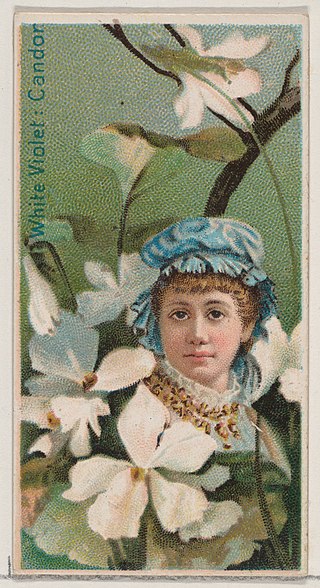
Violet is a female given name which comes from the eponymous flower. As with other such names, its popularity has varied dramatically over time. Flower names were commonly used from about 1880 through about 1910 in the United States, with usage dropping throughout the next 80 years or so; Violet was the 88th most frequent girls' given name in 1900, dropping below position 1000 by 1960. In 1990, the name appeared again in the top 1000 at position 289 and subsequently increased in popularity. It was the 20th most used name for newborn American girls in 2022. It rose rapidly in popularity for American girls born that year, one of several fashionable names that contain a letter v.
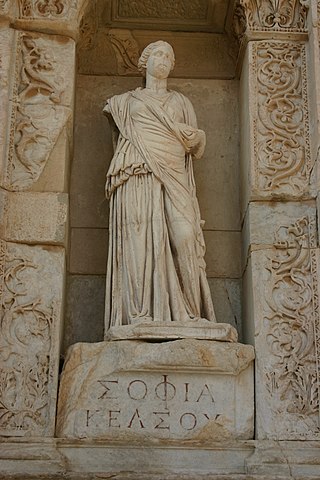
Sophia, also spelled Sofia, is a feminine given name, from Greek Σοφία, Sophía, "Wisdom". Other forms include Sophie, Sophy, and Sofie. The given name is first recorded in the beginning of the 4th century. It is a common female name in the Eastern Orthodox countries. It became very popular in the West beginning in the later 1990s and became one of the most popularly given girls' names in the Western world in the first decades of the 21st century.
Louise and Luise are, respectively, French and German feminine forms of the given name Louis. Louise has been regularly used as a female name in English speaking countries since the middle of the 19th century. It has ranked among the top 100 names given to girls in France, England, Ireland, Scotland, Sweden and Wales in recent years. It last ranked among the top 1,000 first names for girls born in the United States in 1991, but remains a more common middle name.
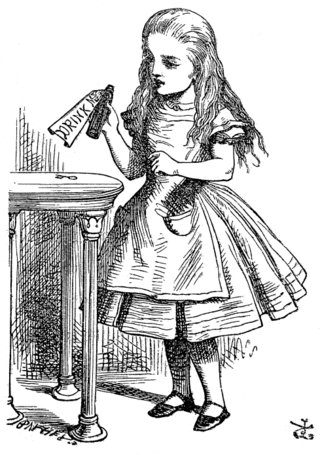
Alice is a feminine first name with roots in the French and German languages.

Jennifer, also spelled Jenifer or Jenefer, is a feminine given name, the Cornish form of Guinevere, that became popular in the English-speaking world in the 20th century.
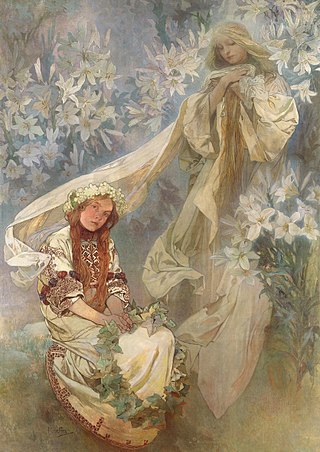
Lily is a feminine given name usually derived from lily, the flower. The name became particularly popular along with other flower names for girls during the 1800s and early 1900s. The lily also has associations with and has been symbolic of innocence and purity in Christian art. Names beginning with or containing the letter L have also been particularly fashionable for girls. It is also occasionally used as a diminutive for other names such as Elizabeth.

Emily is a feminine given name derived from the Roman family name "Aemilius", and is the feminine form of the name Emil.
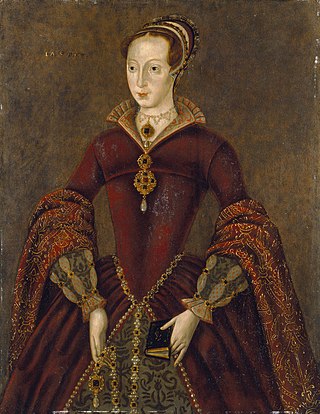
Jane is a feminine given name. It is the English form of Jehanne, the Old French feminine form of Iohannes, a Latin form of the Greek name Ἰωάννης (Iōannēs), which is ultimately derived from the Hebrew name יוֹחָנָן (Yochanan), a short form of the name יְהוֹחָנָן (Yehochanan), meaning "Yahweh is merciful".

Elizabeth is a feminine given name, a variation of the Hebrew name Elisheva (אֱלִישֶׁבַע), meaning "My God is an oath" or "My God is abundance", as rendered in the Septuagint.
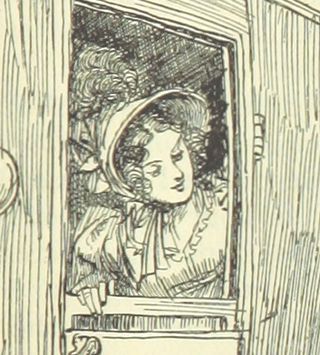
Emma is a feminine given name. It is derived from the Germanic word ermen, meaning "whole" or "universal". It likely originated as a short form of names such as Ermengarde or Ermentrude. Its earliest use begins at least from the early seventh century, with Frankish royal daughter Emma of Austrasia and the wife of Eadbald of Kent found in written sources. Its popularity in the medieval era increased because it was the name of Emma of Normandy, mother of Edward the Confessor. Emmeline is a Norman variant of Emma that was introduced to England by the Norman invaders in the 11th century. The name is etymologically unrelated to Amalia, Amelia, Emilia, and Emily, all of which are derived from other sources, but all of these names have been associated with each other due to their similarity in appearance and sound. Emma has been used as a short form of some of these names or shares diminutives such as Em or Emmy with them.
Caroline is a feminine given name, derived from the male Charles. Common nicknames and variations include Callie, Carol, Carole, Carolina, Carolyn, Carly, Carrie, and Caz.
References
- 1 2 "Royal baby: Queen meets great-granddaughter". BBC. 5 May 2015. Retrieved 5 May 2015.
- ↑ "Australia's 100 most popular baby names". Kidspot. 2 April 2013. Archived from the original on 10 January 2014. Retrieved 10 January 2014.
- ↑ "Popular Baby Girl Names in 2022". Baby Names. Retrieved 11 April 2024.